Steering Gear Cylinder Pipe Assembly and Seals Replacement - Off Vehicle Magnasteer
Disassembly Procedure
- Loosen both cylinder line fittings (1) on the cylinder end of the gear assembly.
- Loosen both fittings on the cylinder line assemblies (3) at the valve end of the gear assembly (2).
- Remove both cylinder line assemblies (1) from the rack and pinion gear assembly (2).
- Remove the O-ring seals (1) from the valve end of line.
- Discard the O-ring seals (1).
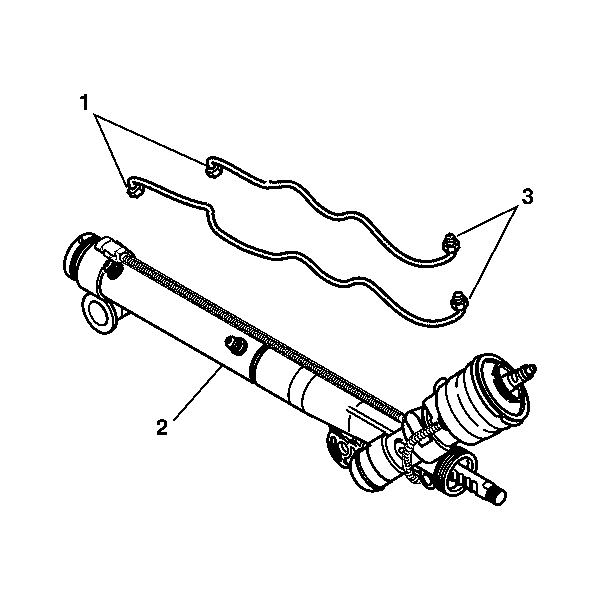
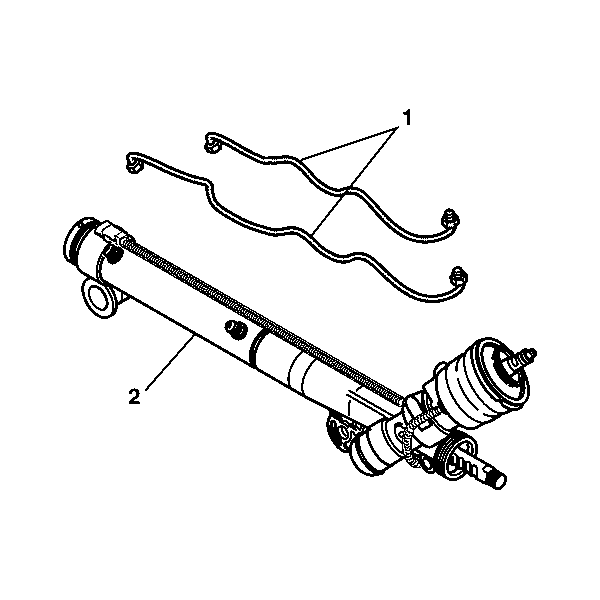
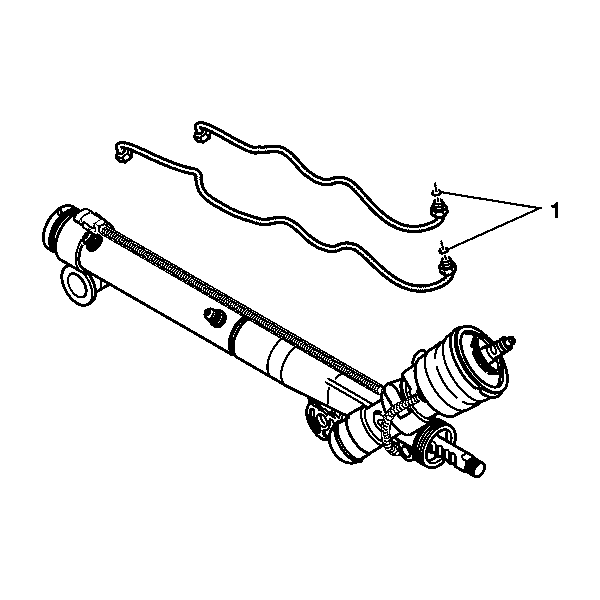
Assembly Procedure
- Inspect the cylinder lines (1) for the following items:
- Replace the parts as needed.
- Install the new O-ring seals (1) to the valve end of the cylinder lines.
- Install the cylinder line assemblies (1) to the gear assembly (2).

| • | Cracks |
| • | Dents |
| • | Damage to the threads |

Important: Carefully align the threads on all of the fittings. Finger tighten the fittings in order to avoid stripping and cross-threading the fittings.

Notice: Use the correct fastener in the correct location. Replacement fasteners must be the correct part number for that application. Fasteners requiring replacement or fasteners requiring the use of thread locking compound or sealant are identified in the service procedure. Do not use paints, lubricants, or corrosion inhibitors on fasteners or fastener joint surfaces unless specified. These coatings affect fastener torque and joint clamping force and may damage the fastener. Use the correct tightening sequence and specifications when installing fasteners in order to avoid damage to parts and systems.
Tighten
| • | Tighten the valve end fittings to 16.9 N·m (12.6 lb ft). |
| • | Tighten the cylinder end fittings to 27 N·m (20 lb ft). |
Steering Gear Cylinder Pipe Assembly and Seals Replacement - Off Vehicle Quiet Valve
Disassembly Procedure
- Loosen both cylinder line fittings (1) on the cylinder end of the gear assembly.
- Loosen both fittings on the cylinder line assemblies (3) at the valve end of the gear assembly (2).
- Remove both cylinder line assemblies (1) from the rack and pinion gear assembly (2).
- Remove the O-ring seals (1) from the valve end of line.
- Discard the O-ring seals (1).
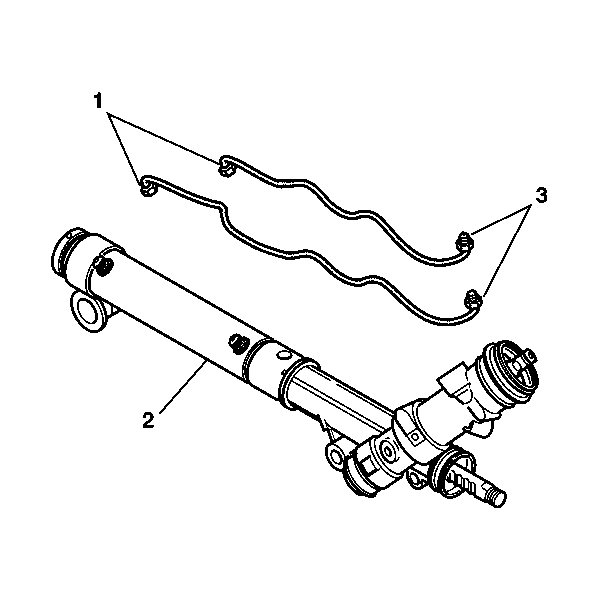
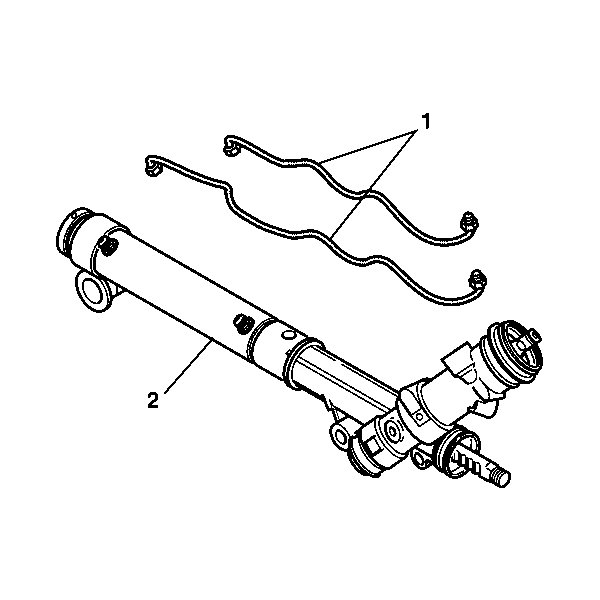
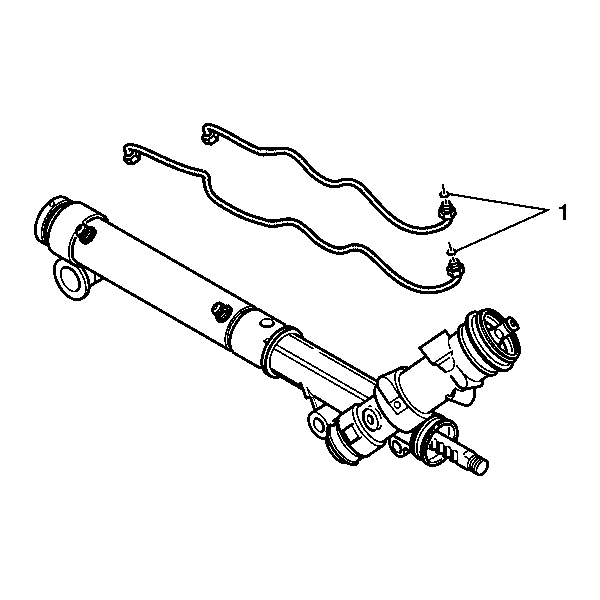
Assembly Procedure
- Inspect the cylinder lines for the following items:
- Replace the parts as needed.
- Install the new O-ring seals (1) to the valve end of the cylinder lines.
- Install the cylinder line assemblies (1) to the gear assembly (2).

| • | Cracks |
| • | Dents |
| • | Damage to the threads |
Important: Carefully align the threads on all of the fittings. Finger tighten the fittings in order to avoid stripping and cross-threading the fittings.

Notice: Use the correct fastener in the correct location. Replacement fasteners must be the correct part number for that application. Fasteners requiring replacement or fasteners requiring the use of thread locking compound or sealant are identified in the service procedure. Do not use paints, lubricants, or corrosion inhibitors on fasteners or fastener joint surfaces unless specified. These coatings affect fastener torque and joint clamping force and may damage the fastener. Use the correct tightening sequence and specifications when installing fasteners in order to avoid damage to parts and systems.
Tighten
| • | Tighten in the valve end fittings to 16.9 N·m (12.6 lb ft). |
| • | Tighten the cylinder end fittings to 27 N·m (20 lb ft). |
